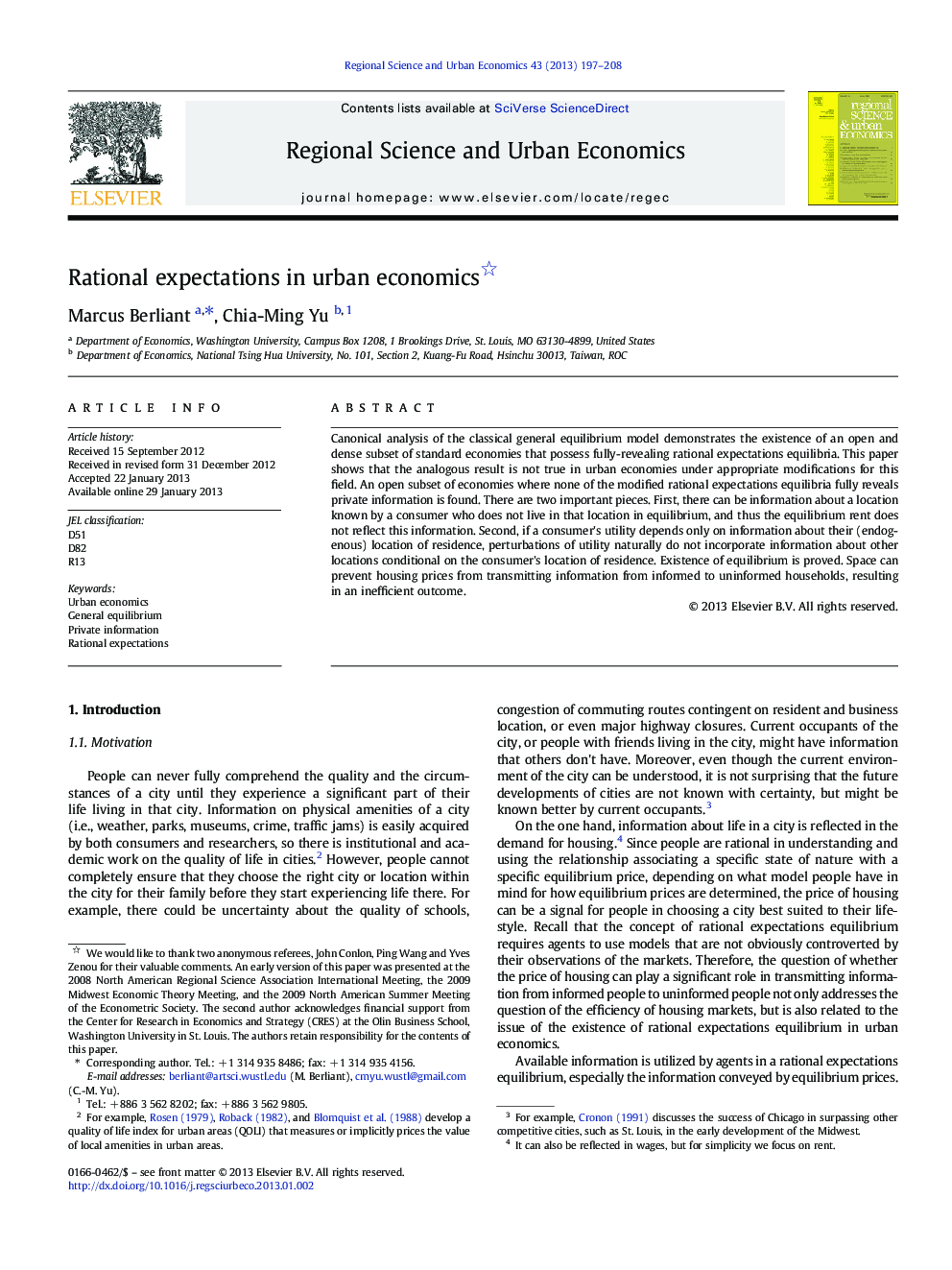| Article ID | Journal | Published Year | Pages | File Type |
|---|---|---|---|---|
| 983959 | Regional Science and Urban Economics | 2013 | 12 Pages |
Canonical analysis of the classical general equilibrium model demonstrates the existence of an open and dense subset of standard economies that possess fully-revealing rational expectations equilibria. This paper shows that the analogous result is not true in urban economies under appropriate modifications for this field. An open subset of economies where none of the modified rational expectations equilibria fully reveals private information is found. There are two important pieces. First, there can be information about a location known by a consumer who does not live in that location in equilibrium, and thus the equilibrium rent does not reflect this information. Second, if a consumer's utility depends only on information about their (endogenous) location of residence, perturbations of utility naturally do not incorporate information about other locations conditional on the consumer's location of residence. Existence of equilibrium is proved. Space can prevent housing prices from transmitting information from informed to uninformed households, resulting in an inefficient outcome.
► In standard economies, generically there is a fully revealing rational expectations equilibrium. ► We show that under appropriate modifications for urban economics, this fails. ► Agent location can prevent information revelation, resulting in equilibria that are inefficient.
